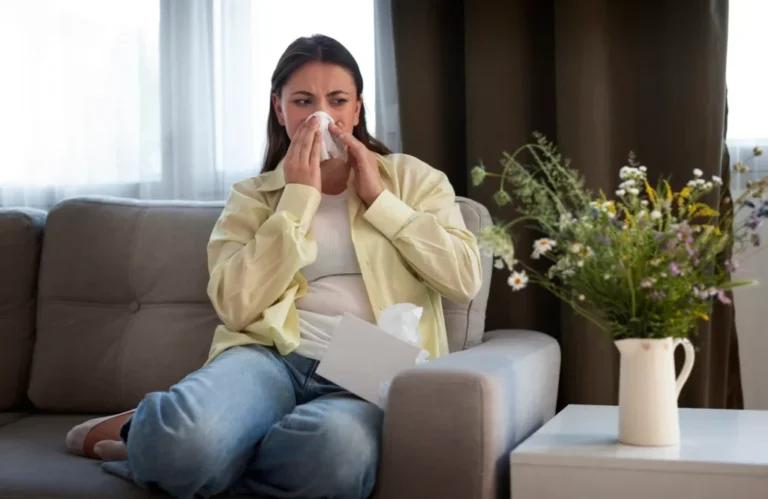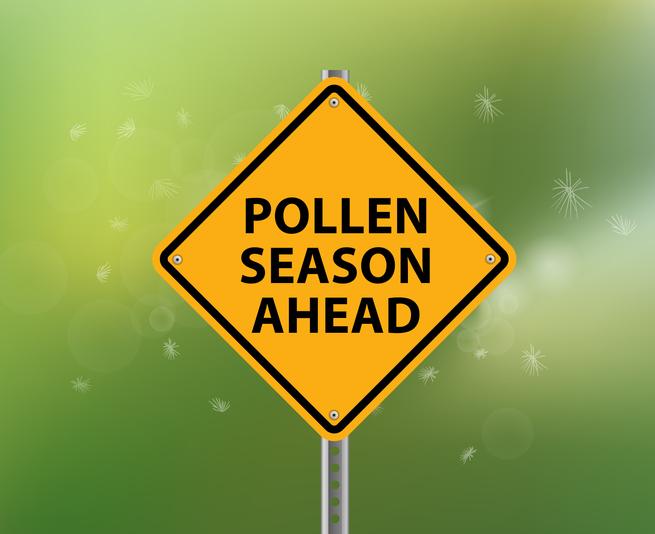Hay Fever
Get valuable insights into Hay Fever, including its causes, symptoms, prevention strategies, and treatment options, while also learning about how you can lower the cost of the medications used to treat Hay Fever.

MEDICAL INFORMATION
Hay Fever Key Facts
Related Medications
As the seasons change, many find themselves with symptoms such as nasal stuffiness, and itchy eyes caused by hay fever, also known as allergic rhinitis. Hay fever occurs when the immune system overreacts to allergens, such as pollen, dust mites, cockroach droppings or pet dander. Understanding its triggers, the symptoms of hay fever, and management strategies is essential to minimize its impact.
Here, we’ll take a closer look at hay fever, to understand the condition and identify its common symptoms. We’ll also take a look at what triggers the allergic response, how to avoid the risk factors, and effective management strategies for hay fever.
Understanding Hay Fever: An overview
What is Hay Fever?
Hay fever, also known as allergic rhinitis, is an allergic reaction to airborne substances such as pollen, dust mites, and animal dander, which are normally harmless, but cause an immune response to release histamine in those susceptible. Allergy symptoms include a runny nose, itchy eyes, itchy nose, congestion, sneezing, and sinus pressure. Symptoms are similar to a common cold but are triggered by allergens, not a virus. Those with asthma or eczema are also more likely to develop hay fever.
Seasonal allergies vs. Perennial Allergic Rhinitis
Allergic rhinitis is categorized into two types: Seasonal and perennial. Seasonal allergic rhinitis occurs mainly during specific times of the year when pollen counts from trees, grasses, and weeds is high. Perennial allergic rhinitis occurs all year-round and is usually caused by indoor allergens like pet dander, dust mites, and molds.
Identifying Hay Fever symptoms
Nasal symptoms: Runny nose, sneezing, congestion
Individuals with hay fever often experience a range of nasal symptoms due to their body’s reaction to allergens such as pollen, dust, or mold. Symptoms include:
- Nasal congestion: When the nasal passages become inflamed and swollen
- Runny nose: An increase in mucus production leads to a persistent runny nose, often accompanied by postnasal drip which can irritate the throat
- Sneezing: Frequent sneezing is triggered by the irritation of the nasal passages and is a reflex to clear the irritants out
Eye symptoms: Itchy, red, or watery eyes
Hay fever significantly affects the eyes, leading to uncomfortable and sometimes debilitating symptoms:
- Itchy eyes: Pollen and other allergens may cause severe itching, prompting a desire to rub the eyes which can make irritation worse
- Red eyes: Allergic reactions can cause blood vessels in the eyes to expand, making them appear red
- Watery eyes: In response to irritation, the eyes may produce excess tears to flush out allergens
Other symptoms: Itchy throat, fatigue, headaches
Apart from nasal and eye symptoms, hay fever can cause several other physical discomforts:
- Itchy sore throat: Allergens can cause a tickling or itchy sensation in the throat, leading to coughing or frequent clearing of the throat
- Fatigue: Poor sleep quality due to nasal congestion and other symptoms often leads to daytime tiredness
- Headaches: Sinus pressure from nasal congestion can extend to sinus headaches, causing pain in the forehead, cheeks, and around the eyes
Common triggers and how to avoid them
Outdoor Allergens: Pollen types and seasons
Pollen is a major trigger for hay fever, and its levels vary by season. Tree pollen is most common in early spring, while grass pollen is more common in late spring through summer. Ragweed pollen peaks in the fall. To reduce exposure, you should stay indoors on dry, windy days and use air purifiers to filter indoor air. Showering after being outside can also help remove pollen from the skin and hair.
Indoor Allergens: Dust mites, pet dander
Indoor allergens like dust mites and pet dander are present all year-round. Dust mites thrive in bedding, carpets, and upholstered furniture. Covering mattresses and pillows with allergen-proof covers, washing bedding in hot water weekly, and maintaining low humidity can help control dust mite levels. It’s advised to keep pets out of bedrooms and to bathe and groom them regularly to reduce pet dander. High-efficiency particulate air (HEPA) filters can also reduce airborne dander.
Non-allergenic triggers: Smoke, perfumes, chemicals
Smoke, strong perfumes, and various chemicals can irritate nasal passages and make hay fever symptoms worse. Avoiding smoking areas, using unscented cleaning products, and ensuring good ventilation when using chemicals can help manage these triggers.
Effective management strategies for Hay Fever
Avoidance techniques
To minimize hay fever symptoms, reduce exposure to known allergens, such as staying indoors during the pollen season, especially on dry, windy days or after thunderstorms. For indoor allergens like dust mites and pet dander, using allergen-proof mattress covers, washing bedding in hot water weekly, and keeping pets out of the bedroom can be effective. Wearing a mask while doing outdoor activities and using air purifiers with HEPA filters can help keep the air clean.
Medications: Antihistamines, steroids, and others
A variety of medications are available to help manage hay fever symptoms. Antihistamines, such as cetirizine or loratadine can relieve sneezing, itching, and a runny nose, while corticosteroid nasal sprays are effective for reducing nasal inflammation and congestion. For immediate relief, decongestants may be used, but they should not be used for more than a few days to avoid rebound effects. Cromolyn sodium and leukotriene receptor antagonists (montelukast) are other options that can prevent allergic reactions when started before symptom onset.
Medications for hay fever are available in a variety of forms, such as tablets, liquids, nasal sprays and eye drops. Side effects from treatments will vary depending on the type of medication you are using, these may include drowsiness, headaches, nasal irritation, nosebleeds and cough.
When to seek professional help
Limitations of over-the-counter treatments
Over-the-counter treatments can be effective for mild hay fever symptoms. However, when symptoms persist or worsen despite these treatments, it may indicate a need for a more tailored approach. For symptoms that last more than 7 days or for severe reactions, consult with a healthcare professional to explore further treatment options.
Benefits of consulting an Allergist
Allergists specialize in diagnosing and treating hay fever and other allergic conditions. They can offer allergy testing, such as skin prick tests or blood tests to identify specific triggers and develop personalized treatment plans. Allergists can advise on how to avoid allergens, prescription medications, and long-term strategies such as immunotherapy, which may significantly improve quality of life and reduce the frequency and severity of symptoms.
Advanced treatments: Immunotherapy and prescription medications
Those with persistent or severe hay fever can use immunotherapy, which involves gradually exposing the immune system to allergens to build tolerance, potentially providing long-term relief. Both allergy shots and sublingual tablets are available. Prescription medications may also be recommended to manage acute symptoms to provide relief from chronic sinus infections, nasal congestion, and other disruptive symptoms associated with hay fever.
Conclusion
By using a combination of lifestyle modifications and medical interventions, individuals suffering from hay fever can significantly improve their quality of life. Early identification of symptoms and triggers is essential for effective management, helping those suffering with hay fever to a more comfortable quality of life.
Medical Disclaimer
NowPatient has taken all reasonable steps to ensure that all material is factually accurate, complete, and current. However, the knowledge and experience of a qualified healthcare professional should always be sought after instead of using the information on this page. Before taking any drug, you should always speak to your doctor or another qualified healthcare provider.
The information provided here about medications is subject to change and is not meant to include all uses, precautions, warnings, directions, drug interactions, allergic reactions, or negative effects. The absence of warnings or other information for a particular medication does not imply that the medication or medication combination is appropriate for all patients or for all possible purposes.












